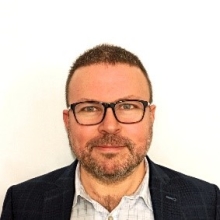
Professor of Catastrophe Risk Engineering
Department of Civil, Environmental & Geomatic Engineering (CEGE)
Faculty of Engineering Science
University College, London
Abstract: Understanding and modeling future risks from natural hazards is becoming increasingly crucial as the climate changes, the human population grows, asset wealth accumulates and societies become more urbanized and interconnected in many parts of the world. The 2015-2030 Sendai Framework for Disaster Risk Reduction recognizes this need, emphasizing the importance of preparing for the disasters that our world may face tomorrow through strategies to minimize uncontrolled development/densification in hazardous areas. However, the vast majority of natural hazard risk-assessment frameworks have so far focused on static impacts associated with current conditions and/or are influenced by historical context. Only a few researchers have sought to provide decision-makers with risk quantification approaches that can be used to cultivate a sustainable future. Modeling dynamic natural-hazard risk can support the development of meaningful decision support for urban development in the design of less exposed and more resilient cities and regions.
This talk will discuss these latter efforts, briefly examining work that is being carried out to model and quantify the individual components that comprise tomorrow’s risk, i.e., future natural hazards affected by climate change, future exposure (e.g., in terms of population and land use) and the evolving physical vulnerabilities of the world’s infrastructure. The talk will highlight challenges faced by modelers in determining the risks that tomorrow’s world may face from natural hazards and the constraints these place on the decision-making abilities of relevant stakeholders. Finally, the talk will introduce the risk-based, pro-poor urban design and planning framework (and its implementing Decision Support Environment, DSE) developed within the Tomorrow’s Cities project, the United Kingdom Research and Innovation's Global Challenge Research Fund Urban Disaster Risk Hub. The hub aims to support the delivery of the United Nations’ Sustainable Development Goals and priorities 1 to 3 of the Sendai Framework for Disaster Risk Reduction. In particular, the Tomorrow’s Cities DSE integrates physics-based natural hazard modeling, dynamic exposure and vulnerability (physical and social) modeling, consideration of multihazard scenarios, participatory approaches for identifying risk metrics tailored to the specific context and needs of the urban poor. The talk will discuss the ongoing implementation of the Tomorrow’s Cities DSE in Nairobi, Kenya, and Kathmandu, Nepal, where methodologies and guidelines for action-oriented, pro-poor, multihazard risk-based decision-making are co-produced with local, national and global stakeholders and research partners.
Bio: Carmine Galasso is a professor of catastrophe risk engineering in the University College London’s Department of Civil, Environmental & Geomatic Engineering, UK. His research focuses on developing and applying probabilistic and statistical methods and computational/digital tools for catastrophe risk modeling and disaster risk reduction. He is investigating risks to building portfolios and infrastructure exposed to multiple natural hazards, including earthquakes, strong wind and flooding, with particular emphasis on low-income countries and community-based infrastructure (schools, hospitals, heritage assets). Galasso has authored more than 180 peer-reviewed papers; his research is funded by the UK Research Councils, the European Commission, the British Council, the Chinese International Centre for Collaborative Research on Disaster Risk Reduction, the World Bank and its Global Facility for Disaster Reduction and Recovery, the Motorola Solution Foundation and the Willis Research Network.
Carmine is a key investigator of the newly funded £20M Global Challenges Research Fund Urban Disaster Risk Hub by UK Research and Innovation, where he leads the Risk Working Group. The hub works in four cities (Istanbul, Kathmandu, Nairobi and Quito), collaborating with local, national and global organizations to strengthen disaster risk governance by undertaking integrated, multiscale and cross-disciplinary research to better understand natural multihazard risk and its drivers.
Share
Upcoming Events
-
MSE 298 Seminar: Mechano-Electrochemical Phenomena at Ceramic Electrolyte Interfaces
-
CBE 298 Seminar: Beyond the Tailpipe - From the Science of Soot Formation to the Engineering of Carbon Nanomaterials
-
MSE 298 Seminar: Innovation In Materials Science - An Industrial R&D Perspective
-
MSE 298 Seminar: Understanding the Impact of Grain Boundary Inclination on Grain Growth Using Modeling and Simulation and Experiments
-
EECS Seminar: Mixed Conductors for Bioelectronics
